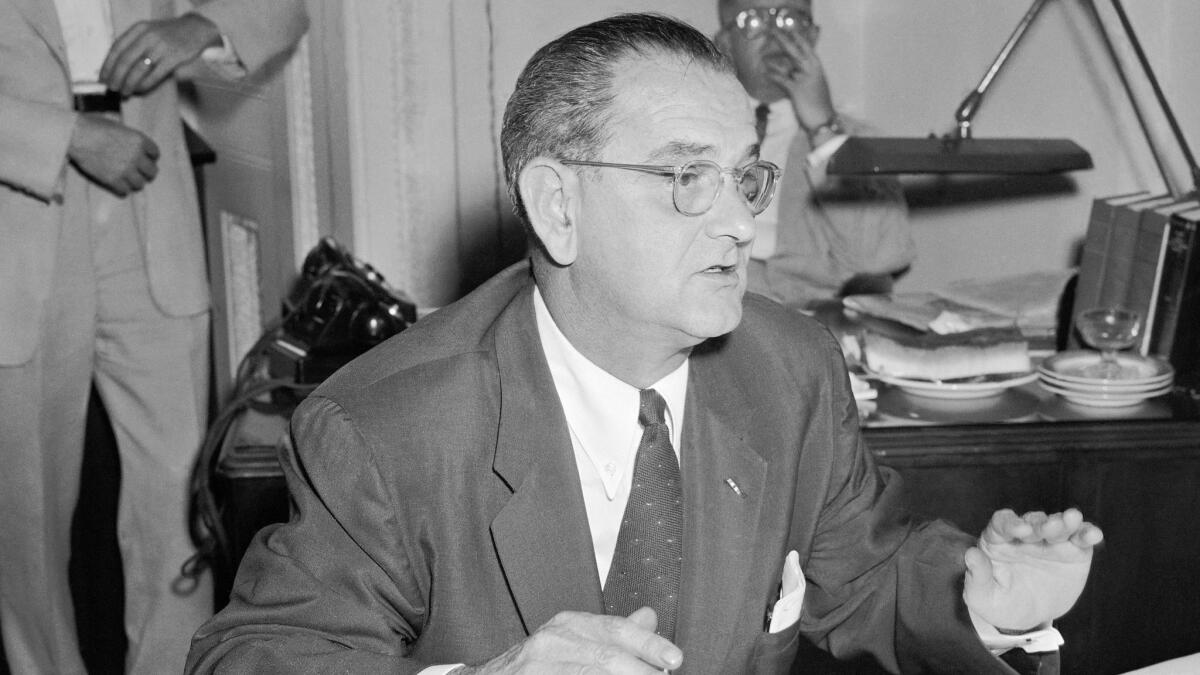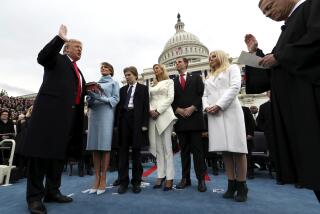Editorial: Keep political campaigns out of the churches

As part of his all-too-successful courtship of religious conservatives, Donald Trump promised during his presidential campaign to “get rid of” the Johnson Amendment, a 1954 law that prohibits churches and other tax-exempt nonprofit organizations from endorsing candidates for public office.
In May, the president issued a largely symbolic executive order that purported to fulfill that campaign promise. Now Republicans in Congress are engaging in stealth tactics to give it real force.
With little fanfare, the House Appropriations Committee recently added language to a Treasury Department spending bill that would make it harder for the Internal Revenue Service to enforce the Johnson Amendment’s prohibition of political endorsements by nonprofits — but only in connection with political activity by “a church, or a convention or association of churches.”
Under that provision, no determination that a church has engaged in improper politicking could take effect without the consent of the head of the IRS, notification of two congressional committees and the expiration of a 90-day waiting period.
Though these provisions fall short of an outright repeal of the Johnson Amendment, they are clearly designed to make such determinations exceedingly rare. Moreover, because the new restrictions wouldn’t apply to investigations of political endorsements by secular tax-exempt organizations, they would almost certainly violate the Establishment Clause of the 1st Amendment.
Finally, even if one believes that the Johnson Amendment should be repealed or revised — and we don’t — the change shouldn’t be accomplished by erecting procedural roadblocks through the back door of the appropriations process. When the full House takes up the Treasury spending bill, it should remove the language about the Johnson Amendment from the legislation, as Reps. Barbara Lee (D-Oakland) and Debbie Wasserman Shultz (D-Fla) had proposed in the Appropriations Committee.
The best reason to do so, however, is that the current, limited prohibition makes sense. With characteristic disregard for the facts, Trump claimed during last year’s campaign that, as a result of the Johnson Amendment, “religion’s voice has been taken away.” In fact, the law doesn’t prevent religious organizations from speaking out about an array of political issues — including homelessness policy, as we note above — and members of the clergy are free in their personal capacities to endorse candidates.
Rather, the Johnson Amendment says to churches and other nonprofits that if they desire the considerable financial benefits of tax-exempt status, they must refrain from a small subset of political speech. The overarching principle is that taxpayers shouldn’t be asked to subsidize political endorsements with which they disagree. The experience of the last 63 years shows that that principle can coexist with vigorous political advocacy and activism by churches and other religious organizations.
Follow the Opinion section on Twitter @latimesopinionand Facebook.
More to Read
A cure for the common opinion
Get thought-provoking perspectives with our weekly newsletter.
You may occasionally receive promotional content from the Los Angeles Times.










